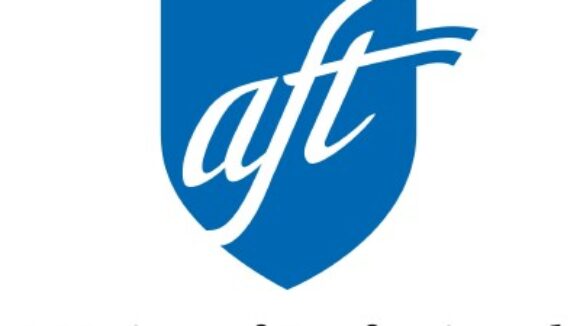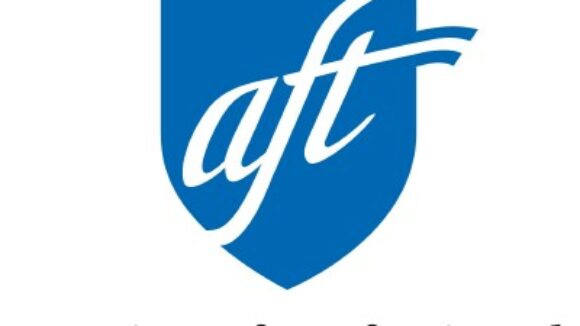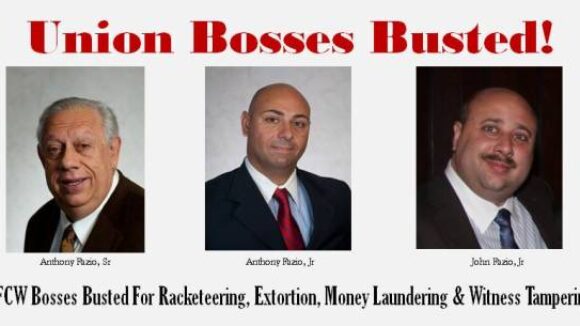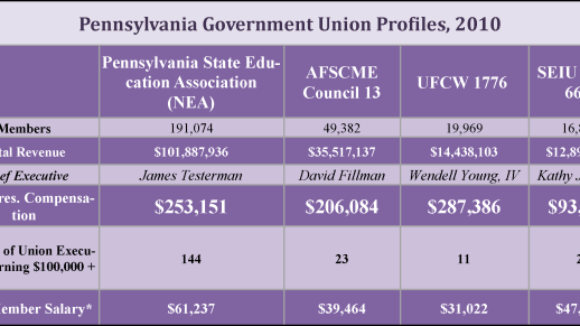Forced-Dues Drive Pennsylvania Public Union Salaries, Outpace Private Sector's and Members' Wages
Forced-dues continue to fill the coffers of unions, as well as, union presidents' and politicians' pockets according to this recent study by the Commonwealth Foundation:
Government Unions and Forced Dues
Almost half of government workers in Pennsylvania are union members, compared to 9.3 percent in the private sector.
Pennsylvania is a forced union state, meaning that workers can be forced to join a union or pay a [so-called] "fair share fee" just to keep their job. Most government units in Pennsylvania are "agency shops," with a specified union to which workers must pay a fee.
When state and local governments automatically deduct dues and fair share fees from government workers' paychecks—as is the practice in Pennsylvania—employees have little or no say in how their money is used.
Union Bosses
Union bosses collect hefty salaries derived from member dues and fair share fees. In most cases, the salaries are several times the average union member's annual pay.
While acknowledging that budgets were tight, AFSCME Council 13 President David Fillman got a 6 percent raise in 2010, making his salary higher than Gov. Tom Corbett's.
Dues and fees often go towards expensive conferences, outings and junkets. For example, in 2009-10 the Pennsylvania State Education Association—the state's largest public sector union—spent:
More than $250,000 on a board of directors retreat in Gettysburg.
More than $89,000 for a "political institution meeting" at the Radisson Penn Harris in Camp Hill, Pa.
$20,000 for advertising in the Pittsburgh Steelers Yearbook.
Almost $5,900 at Kimberton Golf Club and more than $5,100 at Concord Country Club in Chadd's Ford.
Political Activity and Lobbying



